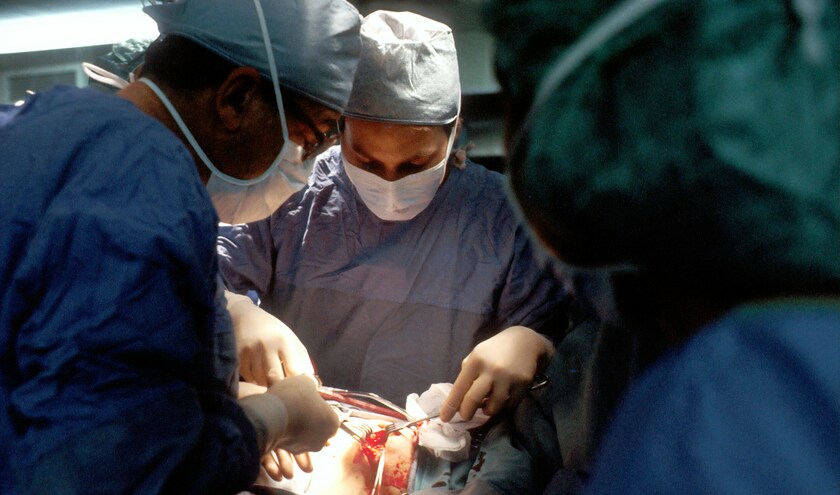The increase follows claims by Prime Minister Rishi Sunak during the General Election campaign that figures were falling.
Professor Sir Stephen Powis, NHS national medical director, said: ‘As these figures show, demand for NHS services across the country remains high. May was a record month for urgent and emergency services, with the highest number of A&E attendances as well as being the busiest May for the most urgent ambulance call-outs, while staff delivered a record number of elective appointments for April.'
The NHS stats show record numbers (2.4m) attended A&E in May. It was the second busiest month on record for emergency admissions, with 564,693 admitted in May.
Ambulance staff also contended with high demand, with the busiest May on record for Category 1 incidents (81,774), alongside a high number of Category 2 call-outs (392,275).
Waits of more than 52 weeks (302,589) are the lowest they have been since August 2021 (295,362), however, while waits of more than 18 weeks are the lowest in almost a year – 3.2m in April 2024, the lowest since 3.1m in June 2023.
It was also the busiest ever April for diagnostic activity, with 2.3m tests, checks and scans carried out – 21% more than same month pre-pandemic (1.9m in April 2019).
In April, there were 260,108 urgent suspected cancer referrals seen, a record for that month, and up almost a third (31%) from April 2019 (199,217).
The number of people receiving a cancer diagnosis or having cancer ruled out within four weeks was a record number for April – 194,504 – despite the increased demand for referrals.
Liberal Democrat health spokesperson Daisy Cooper said: ‘Rishi Sunak needs to apologise to the public for his failure to get NHS waiting lists down instead of ducking responsibility.'
Deputy chief executive of NHS Providers, Saffron Cordery said: ‘Today's figures confirm the scale of the challenge facing the health service – and the next government – to get NHS performance back on track.
‘Trust leaders and their teams are working flat out to ensure no patient waits longer than they need to receive care, but this increasingly feels like an uphill battle.'



